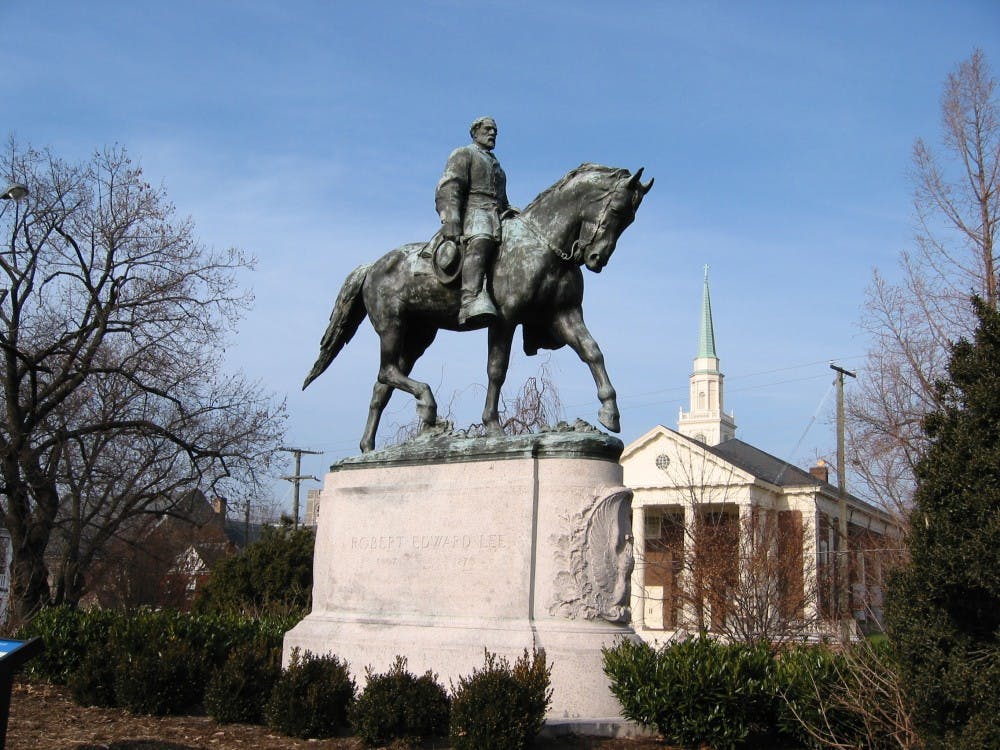Last week, Charlottesville City Council met and decided to continue the survey for the renaming of Emancipation Park and Justice Park. This survey will be used to make a final decision in the summer. The most recent survey was released after a public hearing in February when the city decided to receive community input. The continued debate over renaming the parks demonstrates the community investment in this public space. It also demonstrates that the task of finding a fitting name is an arduous one. The new names selected for the parks must bear significance, or the exhaustive journey to find them will have been for nothing.
The naming debate began in May of 2016 with the creation of a Blue Ribbon Commission to examine race memorials and public space. The commission’s initial focus was not concerned with naming, but rather on the confederate statues of Robert E. Lee and Stonewall Jackson. In November, the commission recommended to keep the statues with the addition of historical context. At the same meeting, it was suggested that the city also rename both parks. When City Council decided to remove the confederate statues in February of last year, a motion was formally introduced and voted unanimously in favor of renaming the park.
In June of 2017, City Council voted to officially rename the parks. There were more than 2,600 name suggestions, of which 2,200 included “Lee” or “Jackson” in name. The City’s Park and Recreation Advisory Board and the Historic Resources Committee reviewed suggestions, which were then presented to the Council. The City Council decided to rename Jackson Park as Justice Park and Lee Park as Emancipation Park — though Emancipation was not suggested. Months later, the Unity Coalition, a local nonpartisan organization, started a petition to retract the name Emancipation Park. Mary Carey authored the petition which called to rename the park “with a name that is more acceptable to the community and in a way that is more transparent and inclusive.” It was argued that because of its historical context, the word was hurtful to African-Americans. The petition garnered over 800 signatures both on paper and online.
Following Carey’s petition, a new survey was created earlier this year to rename Emancipation Park and Justice Park. Between March 6 and March 28, responses were collected by online submission, phone, email and mail. A total of 7,535 responses were collected. Though Lee, Jackson and Emancipation were removed from the running, 1,825 write-in votes referenced “Lee” and 1,607 write-in votes referenced “Jackson.” Other popular write-in suggestions were Swanson Legacy Park, Donald J. Trump and Heather Heyer Park. Swanson Legacy Park refers to Gregory Swanson, the first black man to be admitted to the University who was honored by the University earlier this year. Heather Heyer would be in honor of the woman who was killed during the “Unite the Right” rally last summer.
The third survey will include several top suggestions. Potential names to replace Emancipation are Market Street Park, Swanson Legacy Park, Library Park or Central Park. For Justice Park, the options are Court Square Park, Courthouse Park, Memorial Park or keeping its name as Justice Park. With the exception of Swanson Legacy park, these names are generic and have no specific meaning. The only specific name refers to Gregory Swanson, but evoking his name in this form of commemoration is hollow. The other suggestions will not cause as much controversy as their predecessors, but carry no symbolic weight in the Charlottesville community. The discourse surrounding this exhaustive two-year process has always relied on the idea that naming is important. Renaming these parks with a generic name is an empty gesture.
As with the past ones, the new names of the parks should evoke something of significance. This is an opportunity to implement a name that will be embraced by the entire community. Heather Heyer Memorial Park, for example, would serve as reminder of the events that happened and the historical context of the park, while also honoring her life. Having this as the new name of Emancipation Park would signal not only to her family, but to the white supremacists that rallied in that space seven months ago, that Charlottesville has not and will never forget the events that led to her death. This kind of meaning is what should be achieved with the renaming of these spaces.
The journey from Lee and Jackson to Emancipation and Justice — and to whatever future name the Council chooses — demonstrates the critical role played by the name of this public space. Choosing a basic name to replace those that have garnered such controversy is an easy out and does not do the process justice. Finding a fitting name should not involve picking one that sounds good, or picking a name that falsely commemorates a man that has no direct connection to the space. The City Council should reconsider which options are presented to the public, and instead of taking the easy way out, choose names that count.
Zari Taylor is a Senior Opinion columnist for The Cavalier Daily. She can be reached at opinion@cavalierdaily.com.








